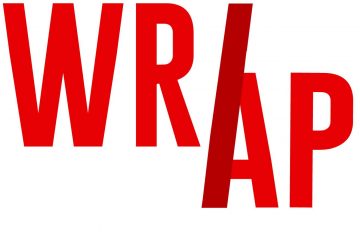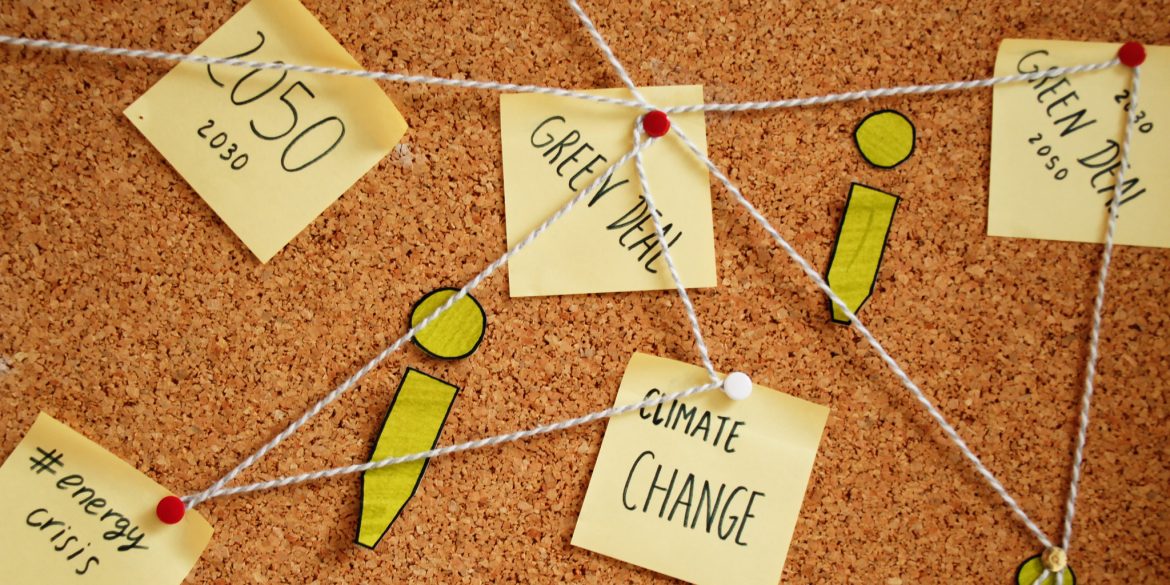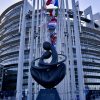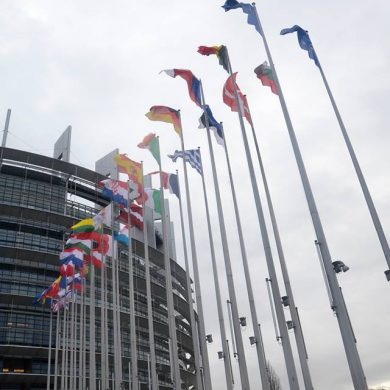With the covid crisis, the Russian invasion of Ukraine and the current energy crisis, the Green Deal isn’t all peaches and cream. The European Commission presented the European Green Deal as their big showpiece on 11 December 2019, but now more than ever the question arises if the Green Deal is still possible by 2050.
The European Union has adopted a large package of measures to combat climate change. The so-called ‘European Green Deal’ is a roadmap for Europe to become a climate neutral continent by 2050. In 2021 the European Parliament adopted the EU Climate Law which made it a legally binding objective to achieve a 55% reduction of emissions by 2030 and climate neutrality by 2050.
The European Green Deal is divided into many different subjects and approaches so that, in principle, all bases are covered and the necessary steps can be taken to achieve the goals set by the European Union.
The Green Deal as a game changer
Stefan De Keersmaecker is the coordinating spokesperson for the Green Deal. Basically he could be called “Mr. Green Deal”. He has been working for the European Commission for more than 20 years. He saw the Green Deal being developed from scratch. “The Green Deal developed in such an interesting way. Scientists were already drawing attention to the dangers of climate change and the declining biodiversity. It was clear that a Green Deal, which is a green transformation of our economy, is extremely important.”
Mr. De Keersmaecker sees the Green Deal as a way to grow the European Union and as a game changer in the way we live. The Green Deal is being implemented in an enormous amount of sectors. “We want to continue growth, but a growth that is green and healthy,” explains Mr. De Keersmaecker.
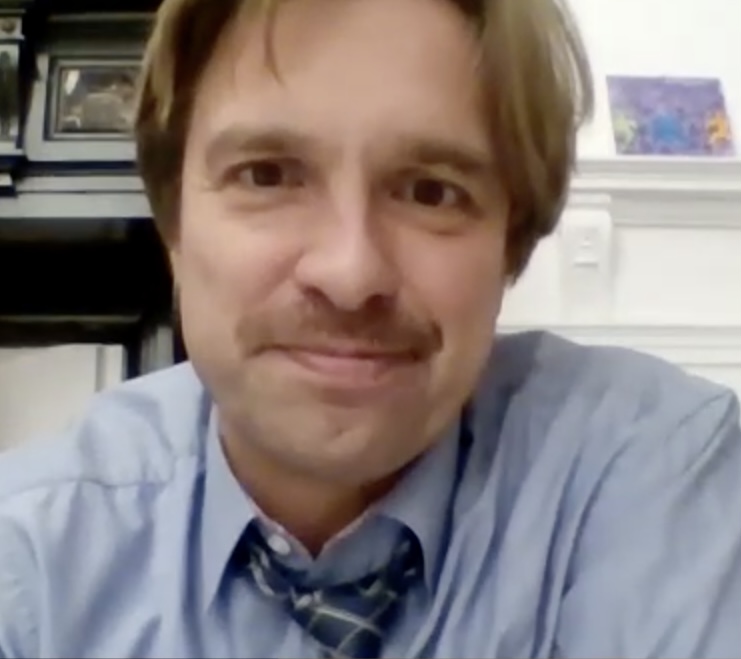
We want to continue growth, but a growth that is green and healthy
Stefan De Keermaecker, Coordinating spokesperson for the European Green Deal
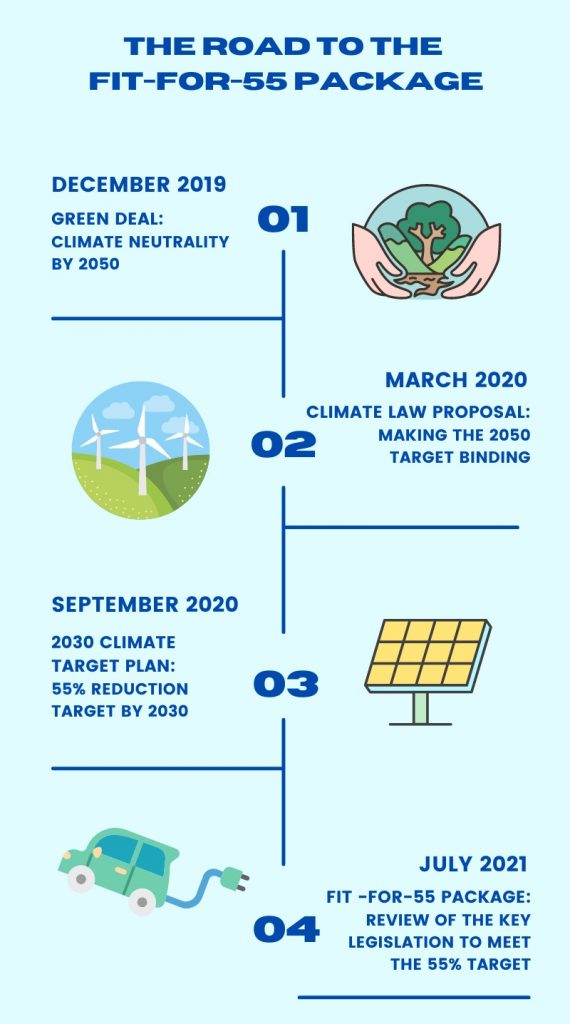
“The Green Deal is not just a matter of reducing emissions. It’s about improving biodiversity, protecting our nature, ensuring we have healthier food and farming systems, rethinking our transport and it’s also about all the finance we put into this. The Green Deal ensures that we put our economies and societies on track for this transformation but also that we support all the people, regions and countries.”
The EU budget will provide €503 billion for the Green Deal, but in total the European Commission has promised to mobilized a minimum of €1 trillion in sustainable investments.
To achieve climate neutrality, Mr. De Keersmaecker says that the ‘Fit for 55’ package is one of the first big steps in achieving the Green Deal. “The package focusses on reducing the emissions in the EU with 55% by 2030 . It contains a lot of legislation for different areas, such as the transport and construction sector.”
The ambitions for the Green Deal are clearly set by the European Commission, but does everybody still believe in the project now that the energy crisis seems to be the main focus of the European Union?
Energy crisis: obstacle or opportunity?
The covid crisis and the Russian invasion of Ukraine had a big influence on the world and on the progress of the Green Deal. Not only were the priorities suddenly elsewhere, but the Russian invasion also started a third, new crisis: the energy crisis. This brings a lot of uncertainty for the European Union and brings into question whether the Green Deal is still possible. When asked if it was still possible to reach the goals set by the Green Deal, Belgian Member of the European Parliament, Sara Matthieu’s (European Green Party) answer was very clear: “No.”
Belgian MEP Kathleen Van Brempt (Progressive Alliance of Socialists and Democrats) served in the Committee on Industry, Research and Energy until 2019. She thinks achieving the Green Deal will be a challenge, especially in the short term. Due to the Russian invasion, Europe buys energy at an elevated price. Something that other countries like Sudan and Morocco can’t afford. They have to fall back on coal to lower the energy prices. This new trend of purchasing coal bothers Kathleen Van Brempt. She thinks coal is the worst source of energy.
For many the covid crisis and the Russian invasion came as a surprise, including for Green Deal expert Mr. De Keersmaecker. Unlike Mrs. Matthieu and Mrs. Van Brempt, he sees the recent crises as an opportunity. “The Russian invasion and following energy crisis showed the importance of the Green Deal. It became clear that we had to go full force ahead with the Green Deal. We need more renewables and less reliance on fossil fuels. Putin, with his war, made that even clearer,” he says sharply.
The Green Deal is a long-term growth strategy, not an emergency strategy
Stefan De Keermaecker, Coordinating spokesperson for the European Green Deal
Mr. De Keersmaecker thinks we need to focus more on the long-term strategy. “The Green Deal is a long-term growth strategy, not an emergency strategy. But I think that it helps us handle this emergency by setting our priorities straight. That when we handle this in a right and sustainable manner.”
The challenge of unanimity and money
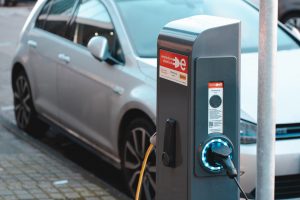
“Our first target is the 55% reduction of emissions by 2030. Based on new legislation that we have recently adopted, such as the ban on fossil fueled cars, we should be able to reach 57%. So we are even improving our targets,” says Mr. De Keersmaecker. “That being said, it is really difficult. It requires that we all realize the importance of what’s happening. We need to find allies in parliament, in member states, in civil society, agriculture and industry. That can be a challenge. But that is our mission and for the time being I would say we are on track to reach or even pass our goals by 2030.”
“Despite the new legislation on fossil fueled cars, not everyone in the Commission is on the same wavelength,” he explains. “For example, Spain made strict rules about fossil fuels (banning all new coal, gas and oil exploration, Ed.). We are aware that because of the Russian invasion there is a temporary need to reintroduce the use of fossil fuels. We have to make sure people have energy. Nuclear energy can also make an important contribution if it happens in a safe way. In the end, the member states are responsible for this. But I don’t think the temporary use of fossil fuels prevents us from achieving the main targets,” Mr. De Keersmaecker clarifies.
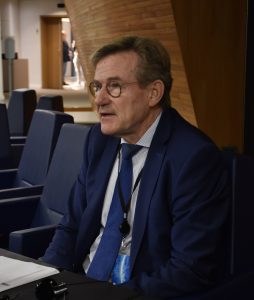
I would say there is not enough money for the Green Deal
Johan Van Overtveldt, Member of European Parliament
The Green Deal, while necessary to achieve the EU’s climate goals, will also require a large amount of monetary investments. Belgian MEP Johan van Overtveldt (European Conservatives and Reformists) is the chairman of the Committee on Budgets. He believes that the Recovery and Resilience Facility, a EU program to help mitigate the impact of the covid crisis, is a good start. But in his opinion, a continuous evaluation will be necessary.
Communication is key
To make sure the Green Deal is still achievable, even with the energy crisis, spokesperson Stefan De Keersmaecker insists on the “will of the people”. Everybody needs to believe in the Green Deal. He sees that there is an awareness and a will to change. “People know that things have to change and that the Green Deal will be a huge challenge. In general, I think there is strong support for its objectives. But of course, if you want to reach these objectives, you need to take action. And these actions are never easy.” MEP Kathleen Van Brempt agrees wholeheartedly. “The most important thing is that everybody is still behind the Green Deal.”
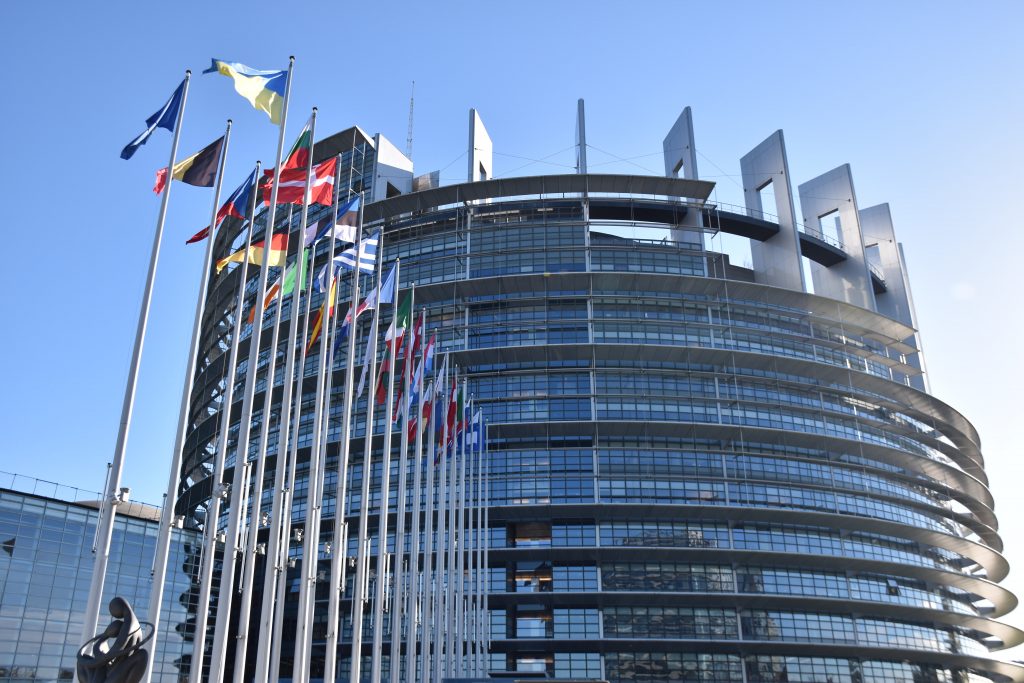
“We don’t force people to support the Green Deal,” Mr. De Keersmaecker continues. “We hope that people will follow us. We put a lot of effort in what we hope to be good policy making and being communicative about it. But of course people are completely free to disagree with us. ”
MEP Johan Van Overtveldt determines that we need more than the support of people. He thinks it’s important to safeguard three things: the climate objectives, energy security and the income of people. Guaranteeing all of those things is challenging though, he realizes.
The future of Europe looks green
So, is the energy crisis an opportunity for a greener future? It seems so. The Russian invasion and the following energy crisis has made Europe realize how important renewables are. Renewable energy is a great way to decrease our dependence on Russian resources. At the same time it helps us to reach the goals of the Green Deal. Therefore, the Green Deal and the energy crisis are interlinked. Thus, the Green Deal is still possible even with the challenges of the energy crisis.
That doesn’t mean it will be an easy path forward. The budget will need to be constantly re-evaluated. Because the European Union has a lot of different member states with different needs, there is a need for political unanimity. The citizens and industrial sector both need to adapt their lifestyle, because the Green Deal will need a wide range of support to succeed. All of these things considered, the future of Europe looks green.
